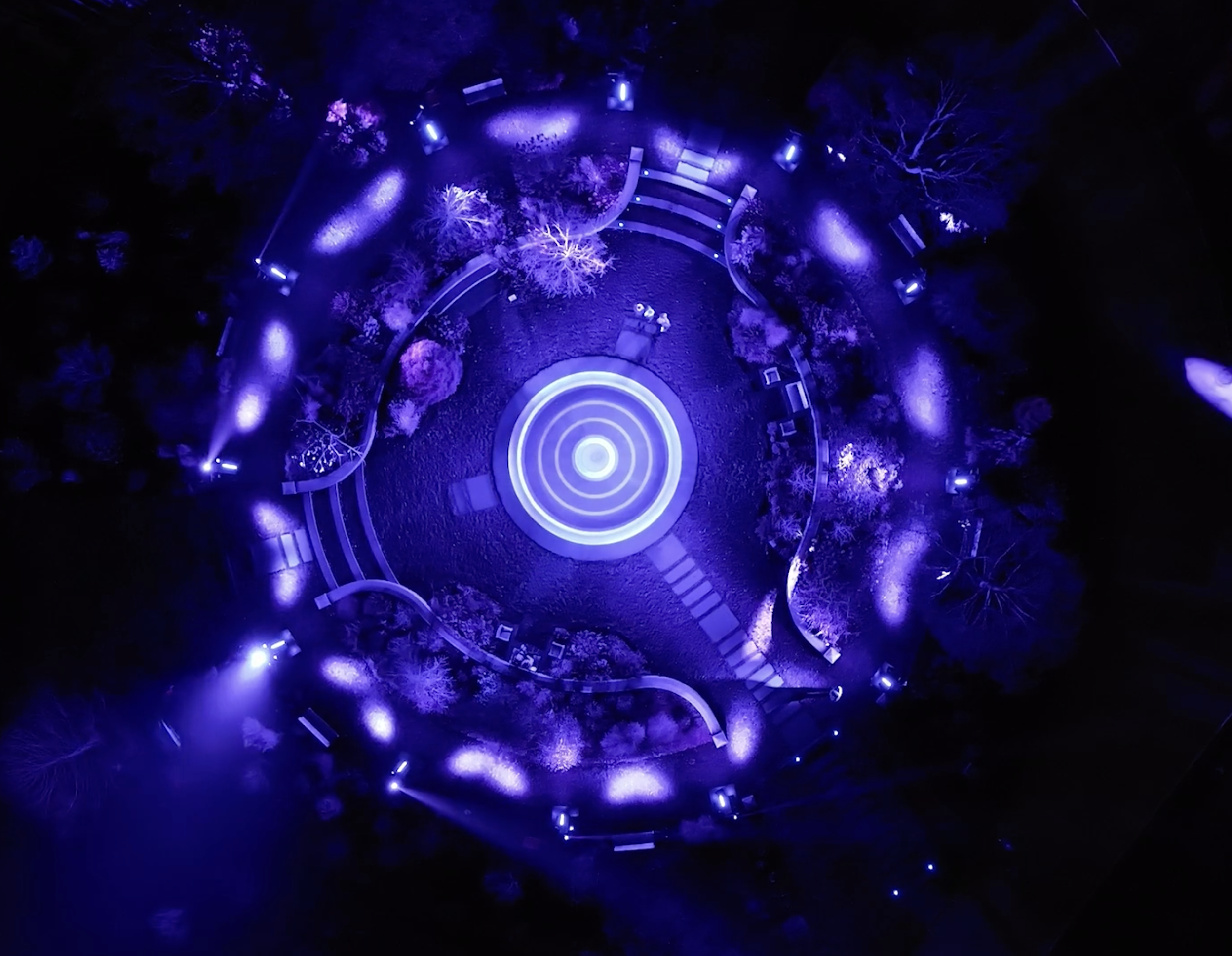
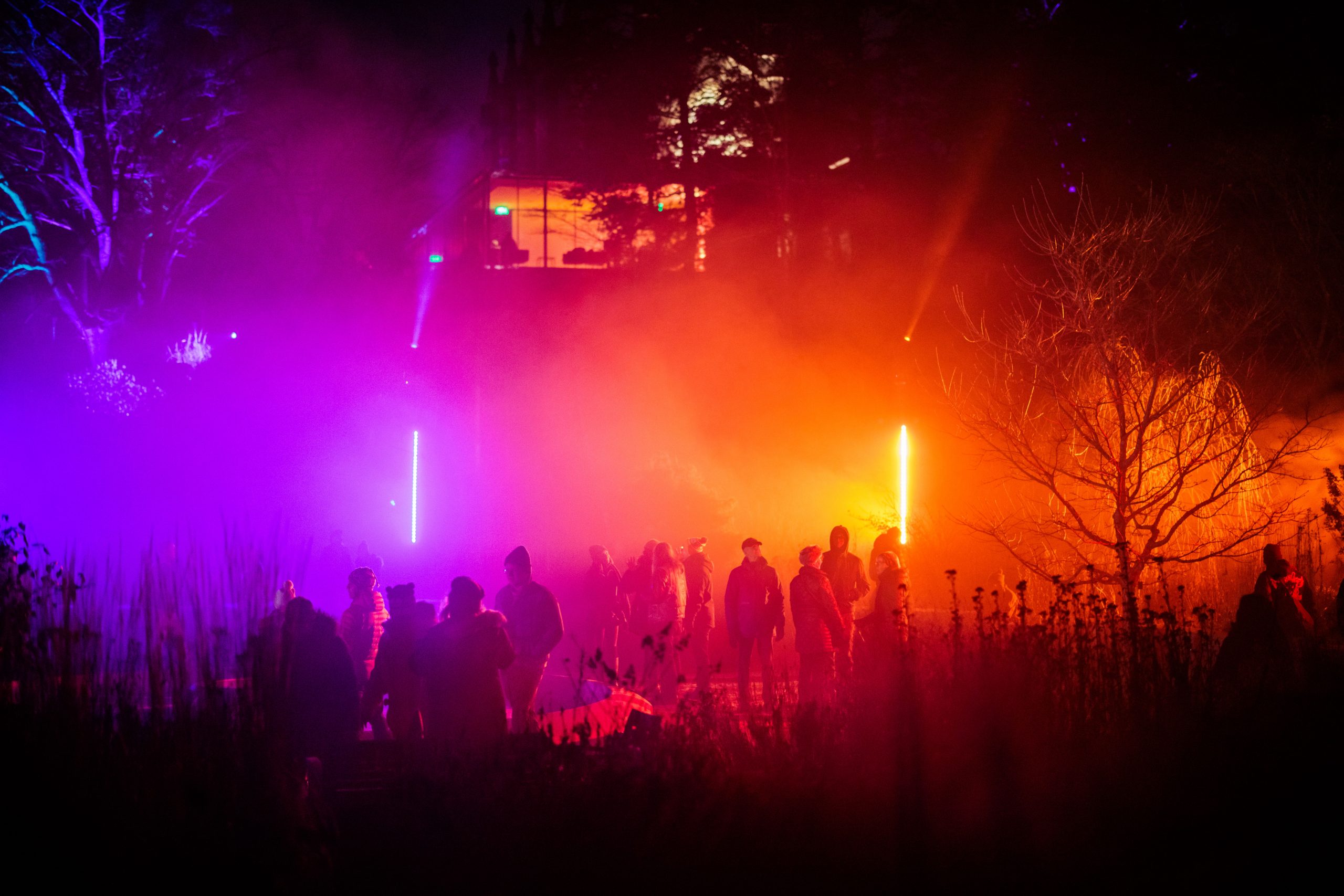
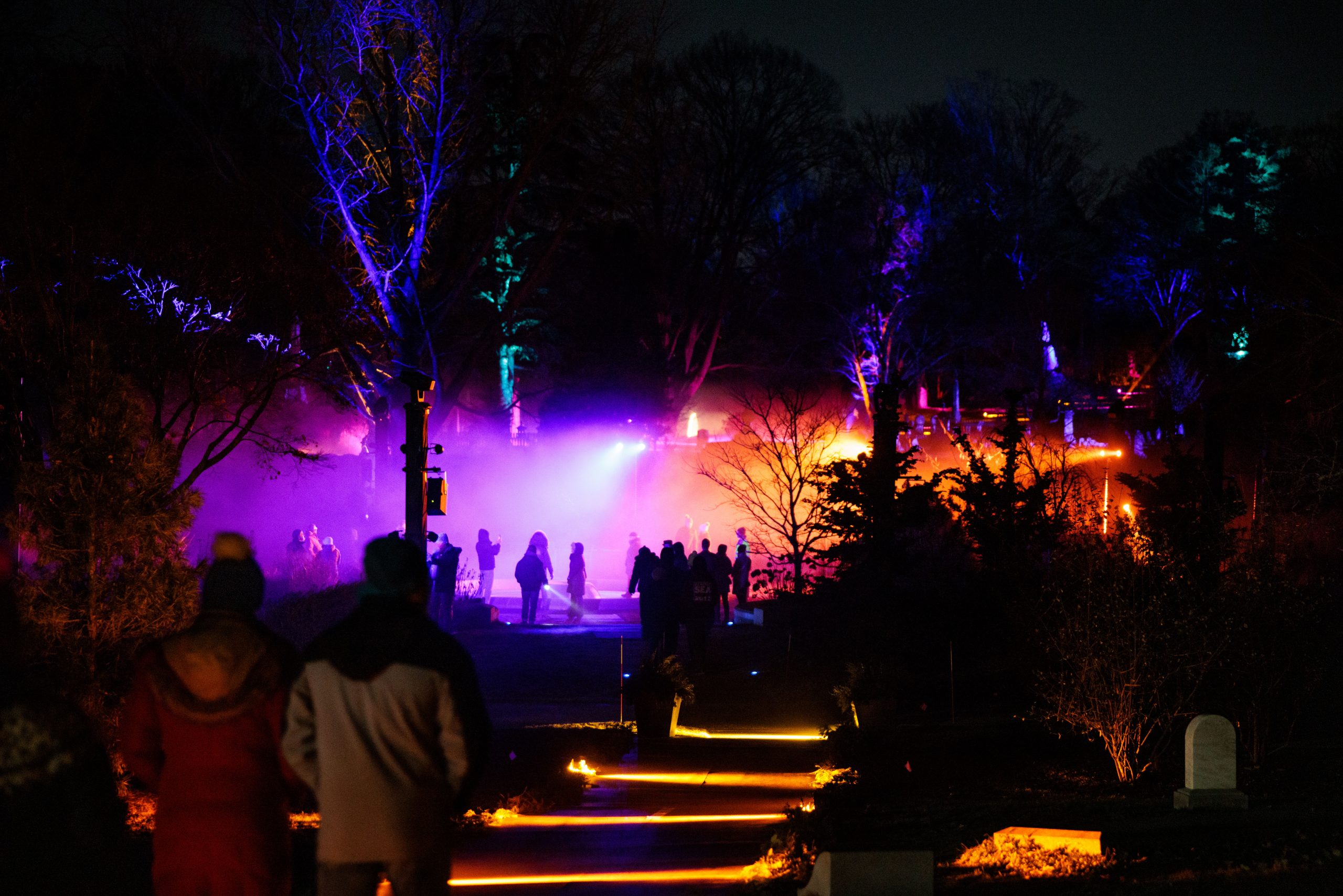
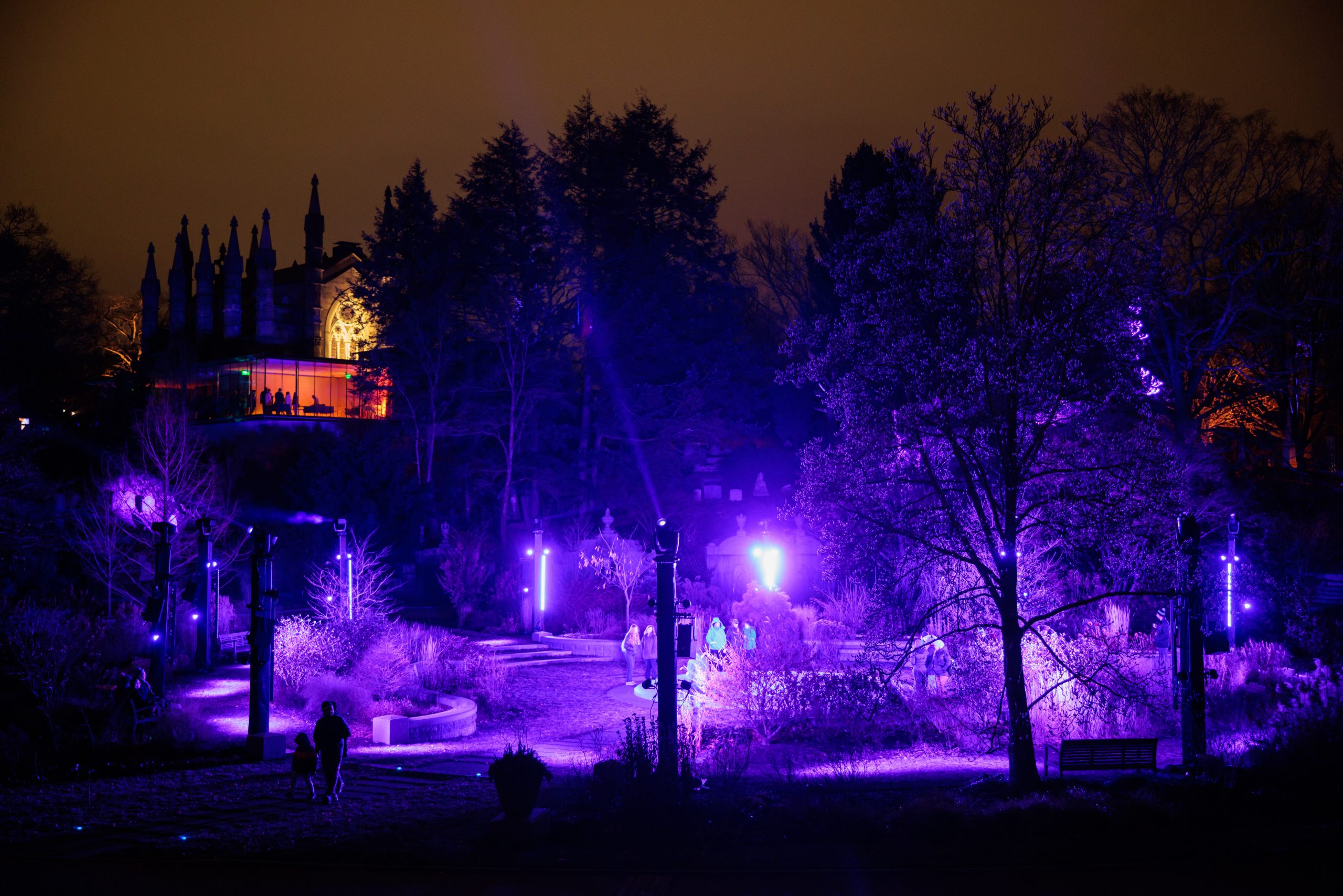
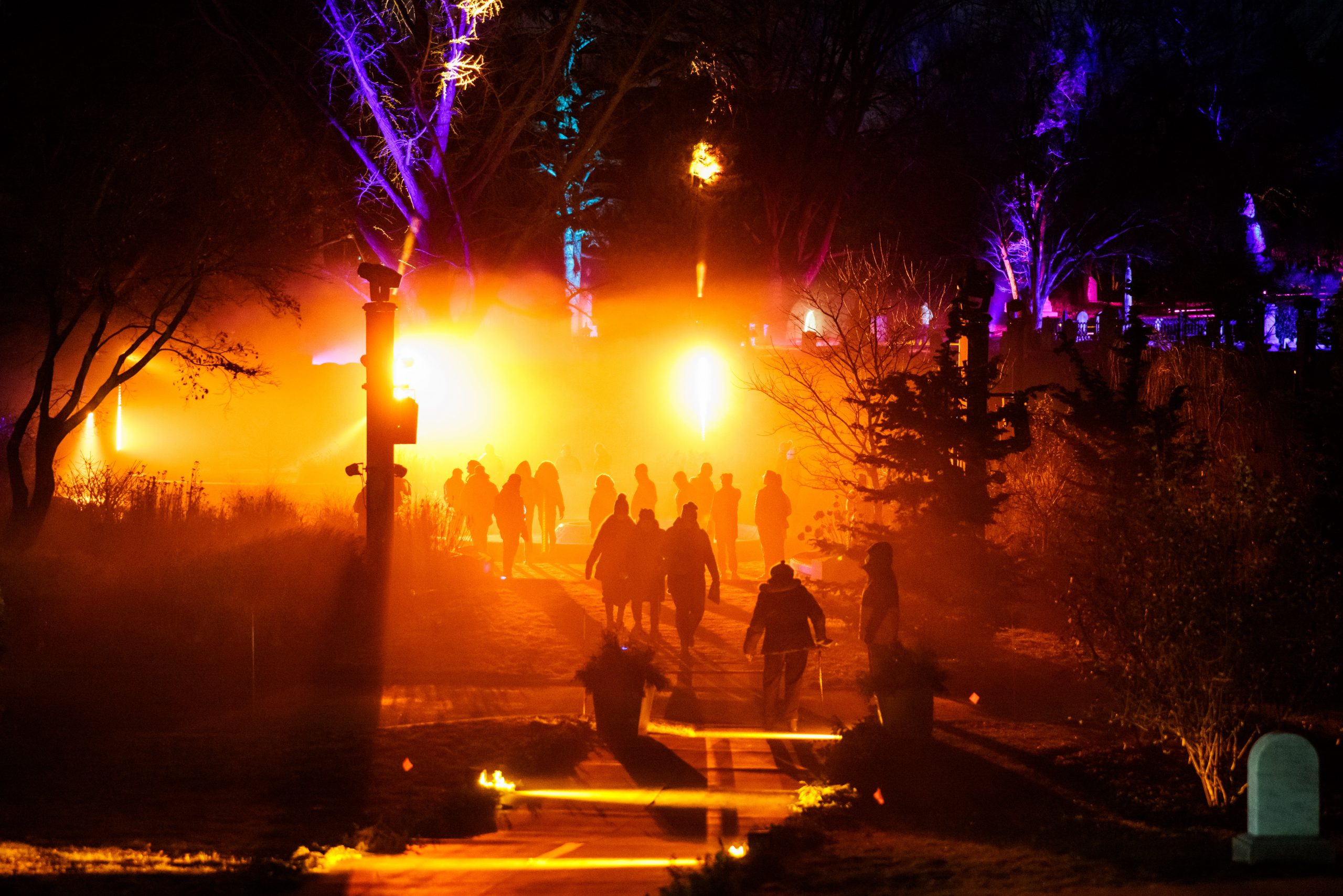
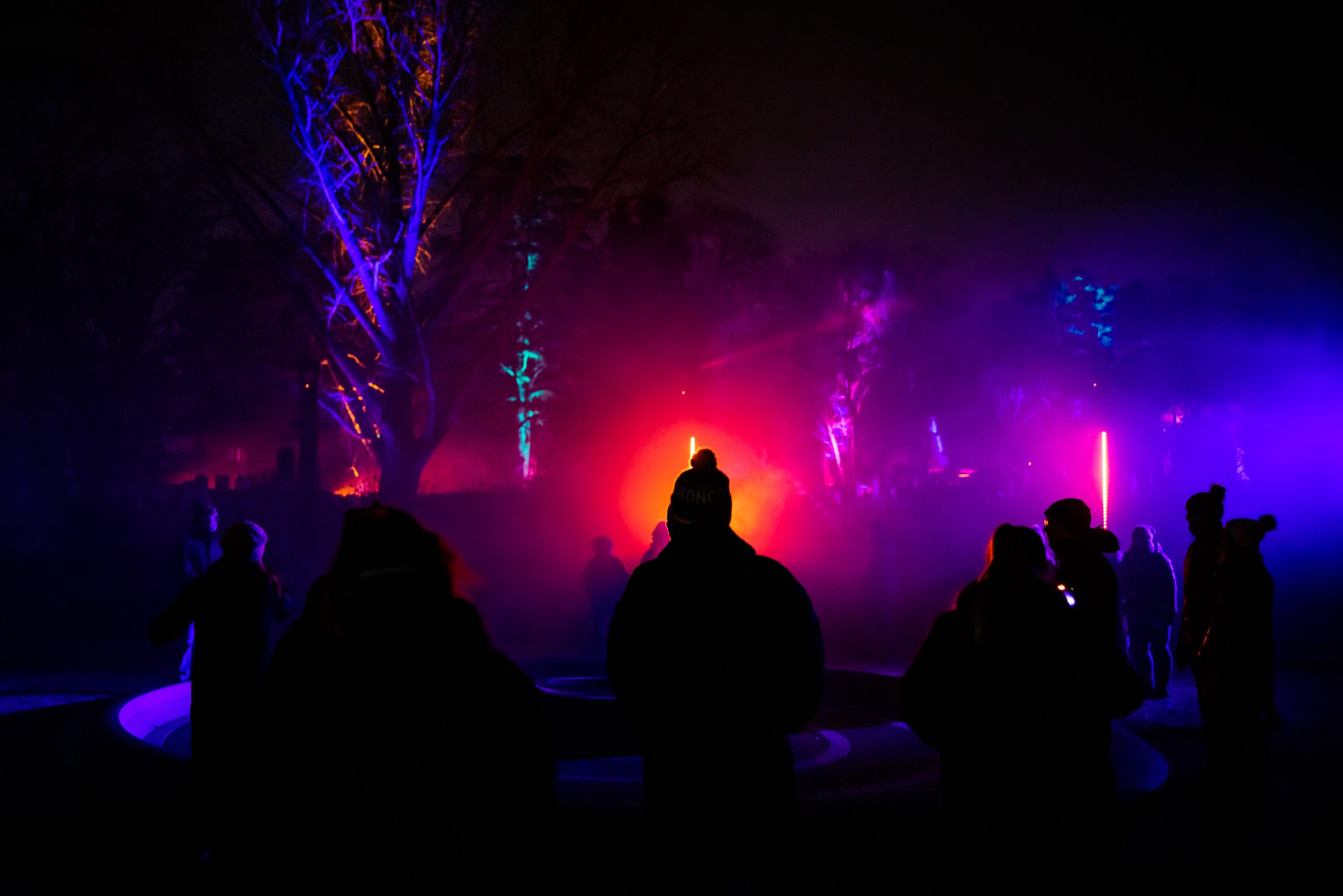
Client: Mount Auburn Cemetery
Location: Cambridge, MA, United States
Completion date: 2022
Project Team
Creative Lead
Ryan Edwards
MASARY Studios
Creative Lead
Jeremy Stewart
MASARY Studios
Production Director
Sam Okerstrom-Lang
MASARY Studios
Technical Assistant
Odie Desmith
MASARY Studios
Production Partner
AVFX
AVFX
Overview
Phase Garden is an investigation of cosmic frequencies realized through multichannel sound and light. Through the use of real-time astronomical cycles and combinatorial mathematics, this artwork explores the rhythms of the cosmos.
Phase Garden is part of a series of site-specific works created for SOLSTICE, an annual event at Mount Auburn Cemetery. It takes place in Asa Gray Garden, framing its circular form with 12 towers, of multiple lighting fixtures and speakers. Cosmic cycles of a solar day, lunar month, earth year, etc., trigger corollary light and sound events.
Phase Garden is, at times, sparse and placid, and at others, rhythmically dense and active. The audience is invited to wander the garden enveloped by light and sound. The harmony, color palette, and rhythm of these events are derived from the periodic relationships between the earth, sun, and moon at various and combined scales. This work visualizes and sonifies the ecstatic math that exists in the universe. Each moment with the artwork is unique and fleeting, provoking questions about circumstance, ritual, interconnection, and the cyclical nature of both our universe and our being.
Phase Garden runs on many “loops” and would take many thousands of years to repeat.
Goals
Phase Garden is constructed using a set of 14 astronomical periods or cycles, along with a constrained set of mathematical and combinatorial operations, to produce the light and sound events in the artwork. Further, melody, harmony, and color palette are also derived from these same cycles. Composing for Phase Garden is a process of working within a tightly constrained environment where the artist searches for those combinations that best and most interestingly reveal the otherwise hidden complexity of these astronomical relationships.
Phase Garden is an installation artwork that was commissioned for an event celebrating the winter solstice as a time of reflection and renewal. This event serves as a moment for individuals to gather, pause, reflect on the previous year, and to prepare and dream for the years to come. The conceptual thesis for Phase Garden seeks to support and address this reflective event by inviting observers to pause and consider the vastness of our planet and astronomical neighbors, and the complexity inherent in our universe.
Process
As artists working in sound and light, our fascination with rhythm and its ability to seduce us into experiences is deeply at play in this artwork. To begin, we chose a number of periodic events that are relative to the solstice phenomenon from our unique perspective as humans on planet Earth. We used a single Earth year as the basis for our periodic relationships. All other cycles are programmed as ratios to this year. These other cycles included various measurements of a Solar day, lunar months, Earth day, etc.
Similarly, the color palette, and melodic/pitch selections are derived from the same set of 14 underlying cycles. The particular sounds used (instrument, texture, treatment, etc) and the envelopes of the events (attack, decay, sustain, release) are all managed by the composers through the software systems employed for expression
The compositional process involves the artists exploring various combinations of these cosmic signals and expressing them in a variety of ways. As many of the signals are very long (days or months to repeat), it is impossible for the composers to fully observe the entirety of the Phase Garden composition. Furthermore, because the signals are don't align or repeat together, Phase Garden could run for thousands of years before repeating.
Additional Information
Composing in this manner, even when employing clever workarounds, most often involved waiting. Patience for combinations of events and surrender to the system we chose became necessary. Typically, in fixed and performed situations, we can play our instruments, write down notes, or instruct the computer to play back midi or other sequential events at our command. In the case of Phase Garden, we found ourselves waiting often for events to unfold, to play out over minutes or in some cases hours, and we would often be surprised and delighted by what we discovered. As is the case with many large scale artworks, we needed to prototype carefully and scale towards our installation plan. This means that before installation we have yet to hear or see our artwork on the system or in the site it was built for. Thankfully we have a few days of build, test, mix and tweak before the public arrives - but we are largely creating and designing for an environment we are only able to imagine.